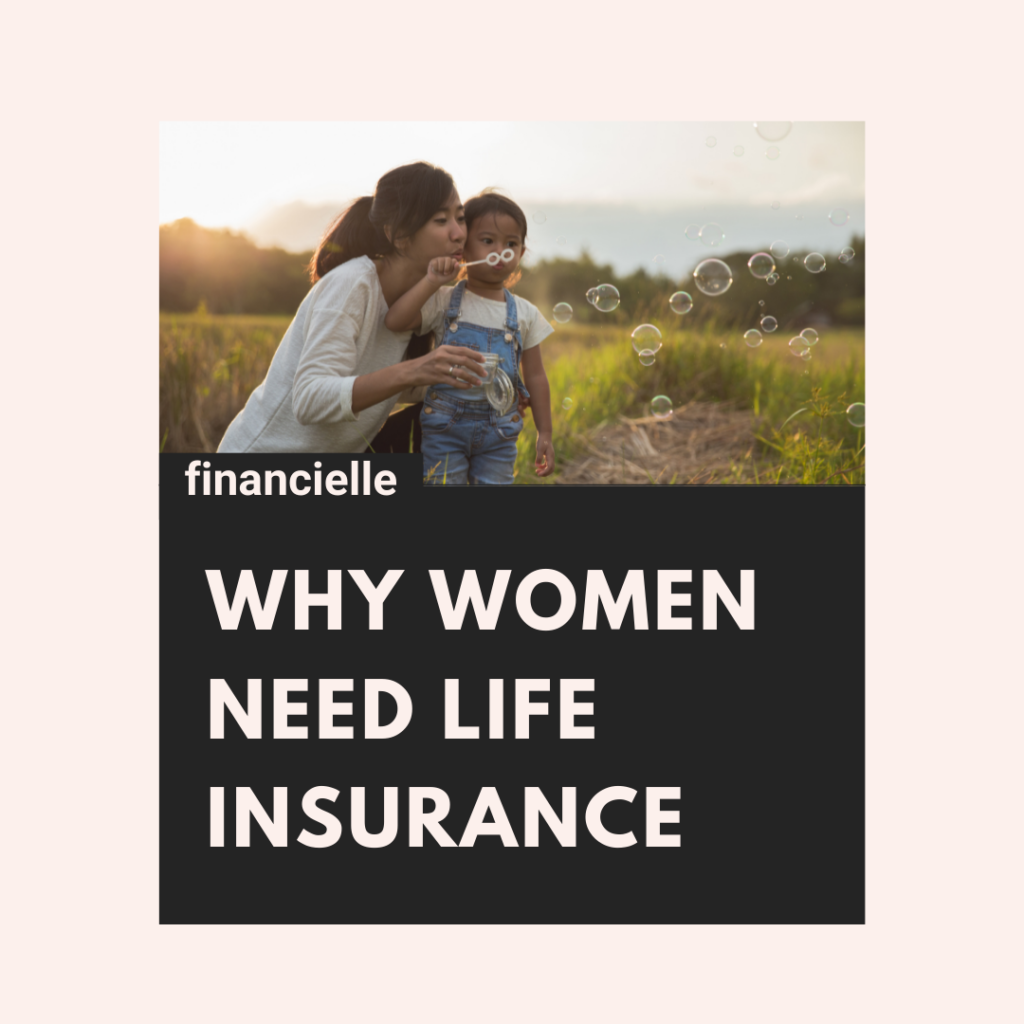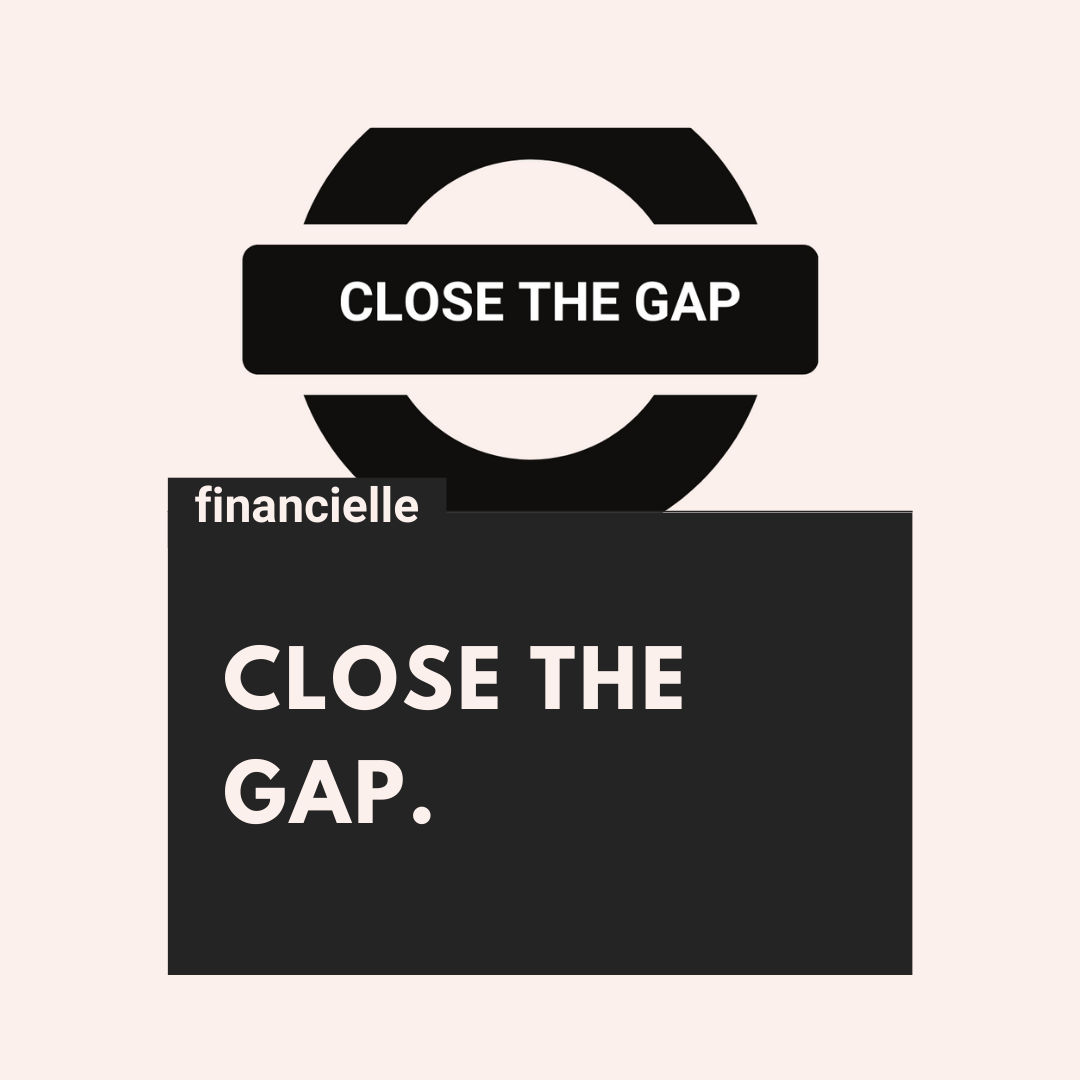Why Women Need Life Insurance

This article is part of a paid partnership with Bequest to help close the life insurance gap in the UK.
The life insurance gap
As of 2019, the life insurance gap was at £312 billion. At Financielle, we’ve taken it upon ourselves to get everyone talking about this and help close that gap along with our good friends at Bequest. Now more than ever, women need life insurance. It’s critical we understand that life insurance isn’t just for the breadwinner of the household, which statistically is usually a male, and it’s not just to cover the mortgage. It’s about so much more than that, it’s about protecting your loved ones in case the unthinkable should happen. This article is going to discuss why women need life insurance.
How do women contribute to that gap?
Women already earn less than men on average and childcare contributes to this. The Office for National Statistics (ONS) found that almost 3 in 10 mothers with a child aged 14 years and under said that they had reduced their working hours because of childcare reasons. This compared with 1 in 20 fathers. Some women assume that because they have reduced hours or aren’t the main breadwinner, they don’t need as much life insurance and so they protect the family with a lower amount on their policy on this basis. We’re here to tell you that you absolutely need good life insurance cover and everyone who has someone that depends on them should reflect on the need for it also.
The main purpose of life insurance is to replace a lost income when a provider of the household dies. If a stay-at-home mum were to pass away, the assumption that they didn’t need life insurance because they didn’t have an income could be detrimental. The cost of childcare alone is at least £26,000 a year. The value that a stay-at-home mum brings to a family is immeasurable, but taking out life insurance could mean your loved ones are being practically taken care of when you’re not there to do it yourself.
If the pandemic has taught us anything, it’s that life is precious, and we need to do all we can to protect it. With the job market being extremely tough this past 18 months (especially for women), your number of paid hours does not determine how much your life insurance payout should be for your family.
The pandemic and female employment
According to research from the UK Parliament, 232,000 fewer women were employed in October-December 2020 than in January-March 2020, which is a fall of 1.5%. The employment rate for women dropped from 72% in January-March 2020 to 71% in October-December 2020.
The Institute for Fiscal Studies also found that by May 2020, mothers were 1.5 times more likely to have either lost their job or quit since March and were more likely to have been furloughed.
According to the Fawcett Society, 35 % of working mothers have lost work or hours due to lack of childcare support during the pandemic.
What if women don’t have children?
There are a couple of key reasons as to why it is recommended women have life insurance regardless of whether they have children or not.
For households where finances are combined, it would be difficult for the remaining partner to manage financially in the event one of them passes away. Where we are dependent on others financially, life insurance can provide a safety net so that the person left behind can focus on grieving and recovery, rather than being distracted by stressful finances.
If a woman (or man) is single, with no dependents, then the benefit of life insurance is cover for the family so that there are sufficient funds to take care of funeral affairs and expenses. All too often, people pass away and expenses mount up immediately – funeral home fees, probate fees, house sale expenses – especially where the individual has consumer and mortgage debt. A life insurance policy can help support family members as they navigate the most difficult administration times.
What about life insurance taken out when you buy a home?
Many of us first took out a life insurance policy when we bought a home – usually via the mortgage broker and for the value of the mortgage. If this was decreasing cover, it means it goes down in value as a mortgage is paid off, decreasing until finally there is no mortgage left and no life insurance policy (remembering the two policies are completely separate and one doesn’t impact the other in practice).
For both level term and decreasing cover, this means that other than paying out enough money to sufficiently pay the mortgage off, it doesn’t provide any extra support for the family to cover all the other outgoings that may be needed.
It is a combination of the above factors that contribute to the life insurance gap, especially when it comes to women. Our mission is to close the gap and throw away the assumption that life insurance is only for the main breadwinner and focus on the value that each individual brings to your household – especially for families.
Another key thing to remember when it comes to life insurance is that the younger and healthier you are – the cheaper it is. So even if you are pre-home and could one day in the future marry and have children, getting a life insurance policy now is statistically likely to be the cheapest it will ever be.
This is why we’ve joined forces with Bequest to help play our part. Bequest has streamlined the life insurance process by providing a simple and easy-to-use platform. From a minimum policy amount of £9 a month held for 3 months minimum, when you take out life insurance with Bequest by 1 August 2021, you will receive a £50 Amazon voucher with this link.
#AD








